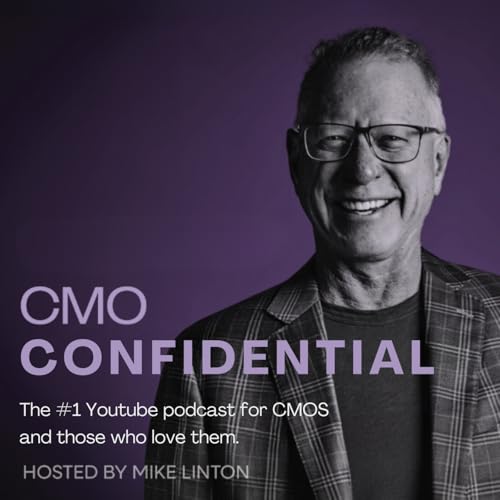A CMO Confidential Interview with DJ Patil, Great Point Ventures investor and former U.S. Chief Data Scientist in the Obama Administration. DJ discusses why AI adoption is "lumpy" like unbaked cake mix, the difference between large models and focused applications, and why consultants are probably not the best way to make progress. Key topics include: Maslow's Hierarchy of AI with power, data and water as the foundation; a timeline juxtaposition of AI evolution versus culture and policy change; and his belief that marketers have a unique position to add "human connectivity" in to the mix. Tune in to hear a view on AI and health care as well as how Waymo almost ruined a date night.
What does AI adoption *really* look like inside large organizations—and why does it feel so uneven?
In this episode of **CMO Confidential**, host **Mike Linton** sits down with **DJ Patil**—former U.S. Chief Data Scientist, AI leader at eBay and LinkedIn, and longtime advisor and investor—for a clear-eyed update from the front lines of AI.
DJ explains why AI progress feels “lumpy,” why culture—not technology—is the biggest blocker to ROI, and what boards, CEOs, and CMOs must do now to avoid falling behind. From autonomous warfare and small models to Wall Street hype cycles, job displacement, and what AI means for the future of marketing, this is a practical, executive-level conversation about what’s real, what’s noise, and what comes next.
If you lead a company, manage a brand, sit on a board, or are building a career in marketing, this episode will recalibrate how you think about AI adoption, investment, and organizational change.
🎧 New episodes of **CMO Confidential** drop every Tuesday.
---
Chapters / Timestamps
00:00 – Welcome to CMO Confidential
00:32 – Introducing DJ Patil and today’s AI focus
01:26 – Where are we really on the AI adoption curve?
02:54 – Why AI progress feels “lumpy” across industries
03:35 – AI fluency vs. AI-native talent
05:22 – AI in education: banning it vs. embracing it
05:57 – AI on the battlefield: Ukraine, drones, and autonomy
07:50 – Big models vs. small models and open source AI
08:12 – The AI investment landscape and industry chaos
09:12 – AI breakthroughs in math and problem-solving
10:52 – Where AI is actually delivering value today
11:50 – ROI, hype cycles, and Amara’s Law
13:46 – When AI savings really show up on the balance sheet
15:17 – Why culture is the biggest blocker to AI success
16:03 – AI speed vs. slow-moving organizations and policy
18:13 – Why executives can’t delegate AI leadership
19:56 – The limits of traditional consulting for AI
22:41 – Job cuts, automation, and what AI is really replacing
25:48 – Why AI isn’t “ready” yet—but is getting close
26:32 – AI as the biggest prize in the history of capitalism
27:18 – Where DJ Patil is investing in AI
29:00 – AI opportunities in healthcare and government
30:27 – What AI means for marketers and marketing careers
34:10 – A Waymo story: the promise and imperfections of AI
35:12 – Final thoughts and where to find more episodes
---
CMO Confidential, DJ Patil, Mike Linton, AI adoption, artificial intelligence strategy, AI for executives, AI and marketing, AI ROI, AI investment, AI leadership, AI culture, future of marketing, chief marketing officer, CMO podcast, executive podcast, boardroom strategy, AI transformation, AI jobs, AI and automation, AI in healthcare, AI governance, enterprise AI, AI fluency, AI native, tech leadership, data science, digital transformation
See Privacy Policy at https://art19.com/privacy and California Privacy Notice at https://art19.com/privacy#do-not-sell-my-info.
 36 m
36 m 41 m
41 m 40 m
40 m
 Jan 27 202641 m
Jan 27 202641 m 49 m
49 m 45 m
45 m 36 m
36 m
